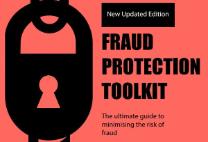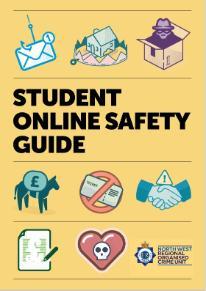Welcome to Cumbria Police’s Fraud Protection Toolkit - a comprehensive, user-friendly guide designed to empower individuals, families, and businesses to safeguard themselves against fraud. This updated resource offers practical advice and actionable steps to help you stay vigilant and secure in an increasingly digital world.

Whether you're concerned about online security, financial fraud, or personal safety, this toolkit offers clear, actionable advice to help you minimize risk and respond effectively to potential threats. By following the recommendations provided, you can take proactive steps to protect yourself and your loved ones from fraud.
Access the full Fraud Protection Toolkit 2.0 here: Fraud Protection Toolkit

